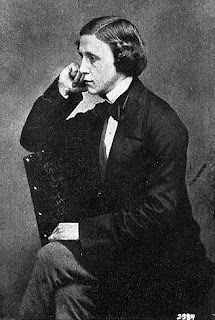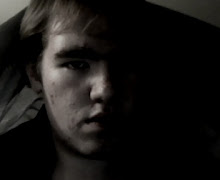Wonder Woman finally gets a new outfit after 69 years. Well, you know how hard it is to find a good pair of shoes that match the dress...
JPC
Wednesday, June 30, 2010
New Projects
Working on a few new things which require my full attention and so I may be posting intermittently for a while. Having very little time what with running around, yet I shall have two new pieces in CommonSense2.com in the next issue and I am also planning four new pieces for the one after that, a double issue.
I'm looking into new things, new possibilities of publishing. I realize that I cannot keep publishing in just one place--I must expand my range as I writer.
As such, I may be coming and going. But, never fear, if I find something interesting, I'll let you know. I'll also keep posting links to new pieces when they appear.
JPC
I'm looking into new things, new possibilities of publishing. I realize that I cannot keep publishing in just one place--I must expand my range as I writer.
As such, I may be coming and going. But, never fear, if I find something interesting, I'll let you know. I'll also keep posting links to new pieces when they appear.
JPC
Thursday, June 24, 2010
A Postscript to Snarky
I must admit, I rather enjoyed writing that bit of nonsense. Once you open yourself up to the realm of the unimaginable phantasmagoria, it's really quite fun.
Reminded of Virginia Woolf, "It's really quite fun being mad. You have wonderful ideas, much more interesting then when you're sane."
Lewis Carroll as we know him, never existed. It's a pen name. It's Dodgson, his real name. There's a fascination with this "Lewis Carroll" figure, speculations on his sexuality and rumors of his dark, tormented personal life, kept hidden even from the most dedicated researchers. What was in those "missing pages" of his diaries? But we've gotten it all wrong. We shouldn't be obsessing over "Lewis Carroll" but instead we should be obsessing over Charles Dodgson.
Reminded of Virginia Woolf, "It's really quite fun being mad. You have wonderful ideas, much more interesting then when you're sane."
Lewis Carroll as we know him, never existed. It's a pen name. It's Dodgson, his real name. There's a fascination with this "Lewis Carroll" figure, speculations on his sexuality and rumors of his dark, tormented personal life, kept hidden even from the most dedicated researchers. What was in those "missing pages" of his diaries? But we've gotten it all wrong. We shouldn't be obsessing over "Lewis Carroll" but instead we should be obsessing over Charles Dodgson.

The works of "Lewis Carroll" and Rev. Charles Dodgson are one and it is unfair to ignore the works of one while praising the other. The two are even intertwined--the routine spectical of mathamatics pops up in both Alice books and The Hunting of the Snark. There should be as much scholarly dedication to Dodgson's "serious" works (including Curiousa Mathematica, Euclid and His Modern Rivals and Symbolic Logic) as there has been to the fantastical Jabberwocky.
JPC
Labels:
Criticism,
Lewis Carroll,
Nonsense,
Parody,
Virginia Woolf
Snarky
I read with a small grain of salt,
a poem last night without fault
though it made no sense
I'm sure it's not coincidence
That Lewis Carroll authored the thingametault.
*
All of Snarks and Boojums last night
Resulting in Dreams quite afright
I covered my head
While I slept in my bed
to save myself from creatures of non-light.
*
No doubt Carroll is to blame
for this rambling, quite innane,
but the matter of fact
is I don't know where he's at
because Carroll isn't really his name.
*
Snarky Snarky Snark,
JPC
Wednesday, June 23, 2010
Updike's Archives
I now have a reason to look forward to the future--twenty years ahead, John Updike's first two unpublished early novels "Go Away" and "Home" will be made available to researchers via the Harvard's rare book and manuscript depository.
From the New York Times:
http://www.nytimes.com/2010/06/21/books/21updike.html
Also from the New York Times, a look at the opening page of the manuscript for Rabbit at Rest.
http://documents.nytimes.com/john-updike-at-work?ref=books
And the article which describes the states of "Go Away" and "Home", also via the New York Times:
http://www.nytimes.com/2010/06/21/books/21archive.html?ref=books
JPC
From the New York Times:
http://www.nytimes.com/2010/06/21/books/21updike.html
Also from the New York Times, a look at the opening page of the manuscript for Rabbit at Rest.
http://documents.nytimes.com/john-updike-at-work?ref=books
And the article which describes the states of "Go Away" and "Home", also via the New York Times:
http://www.nytimes.com/2010/06/21/books/21archive.html?ref=books
JPC
Labels:
Archives,
Harvard,
John Updike,
Libraries,
New York Times
Friday, June 18, 2010
J. M. Coetzee scares me
It's not that I have anything against J. M. Coetzee, in fact, I think he's a wonderful man. The thing about J. M. Coetzee that scares me (aside from his almost total lack of a personal life, his robotic and unrevealing public persona) is that he looks amazingly like an uncle of mine.
Observe J. M. Coetzee's recent photograph on the back of his book, Slow Man:

Remove one or two of the wrinkles and you have my Uncle, whom I shall refer to as John. John and Coetzee are two entirely different people, from different backgrounds, and yet they appear almost identical. Where Coetzee cares about the environment, never eats meat, bicycles everywhere to keep in shape and only says as much as necessary, Uncle John doesn't care about the environment (he has a Hummer as his car of choice, I believe), he never bikes, he eats all the meat he can get onto his plate and will never shut up once he gets going (kind of like me).
I only realized the "lost sibling" aspect of their looks while I was browsing around my room, looking for a paperback of Coetzee's Disgrace. I found the paperback next to a stack of other Coetzee texts, including Diary of a Bad Year, Youth, Waiting for the Barbarians and Slow Man. It was on the back picture of Slow Man that I got the nasty shock.
Uncle John and I don't get along well. And now, my interactions with him have poisoned my interactions with Coetzee. I just can't get past the face. (I thought I was deeper than that)
JPC
Wednesday, June 16, 2010
Bloomsday
Oh,
stately and plump JPC walked past the
riverrun of eve and adam after the fall
(athenaemneowfniaodsosoamownowofahgheowofoofowwllaa!)
of gasoline prices, past the artist, the young man from Dublin and his good Anna, his Molly Bloom, in the land where chamber music comes pennyeach through the night and helpingyhelping lassies lend a hand to the good man of Dublin, the emerald and his shaving water, intoning --Introibo ad altare Dei.
Happy Bloomsday Everyone,
JPC
stately and plump JPC walked past the
riverrun of eve and adam after the fall
(athenaemneowfniaodsosoamownowofahgheowofoofowwllaa!)
of gasoline prices, past the artist, the young man from Dublin and his good Anna, his Molly Bloom, in the land where chamber music comes pennyeach through the night and helpingyhelping lassies lend a hand to the good man of Dublin, the emerald and his shaving water, intoning --Introibo ad altare Dei.
Happy Bloomsday Everyone,
JPC
Monday, June 14, 2010
Bech at Bay
As I work my way through the final Bech volume, I find that Updike knew full well that this would be the final volume and, as such, is paying tribute to Bech. The Protestant's Jewish alter-ego is constantly reflecting on the aspects of his past which we already knew about, having read the last two books. Also, we can see semi-touching portraits of Updike's contemporaries, including a self-referential section of "Bech Presides" in which Updike and several others are suggested as nominees for an arts and culture group called "The Forty". Semi-touching portraits as in, some are sympathetic characters with fatal flaws and others are flawed characters who are fatally sympathetic.
The quizzicle raised eyebrow of Henry Bech on the back illustration of the book presents the attitude of Bech through this Quasi-novel, eyebrows raised and lips in a slight, knowing sneer. After awhile, one gets tired of the sneer, but you still find yourself becoming more nostalgic and quizzicle with Bech as the stories go on.
JPC
The quizzicle raised eyebrow of Henry Bech on the back illustration of the book presents the attitude of Bech through this Quasi-novel, eyebrows raised and lips in a slight, knowing sneer. After awhile, one gets tired of the sneer, but you still find yourself becoming more nostalgic and quizzicle with Bech as the stories go on.
JPC
Tuesday, June 1, 2010
New Review: Bech Is Back by John Updike
This is my review of John Updike's "Bech is Back", part two of the Henry Bech series and part three (or four, I haven't decided yet) of my series of Bech reviews.
http://commonsense2.com/2010/06/book-reviews/bech-is-back-by-john-updike/
JPC
http://commonsense2.com/2010/06/book-reviews/bech-is-back-by-john-updike/
JPC
Again, Martin Amis
I'm reading through Norman Mailer's The Prisoner of Sex and Martin Amis' The Pregnant Widow and reading them side-by-side, I begin to see a connection in their views of women. The master and the pupil take from one another, though of course the pupil takes even more than the master.
Amis has a break from Mailer, however. He has a more favorable view of the sexual revolution than Mailer does (though both clearly benefited from it). Mailer looks terrified seeing the Women's Libbers, Amis looks detached, but fondly. He views the revolution with terror. Of course, he was afraid of a left-wing totalitarianism stemming from the more militant and radical feminists. Amis and his crew seem more afraid of the idea that the sexual revolution might end before they've slept with everyone.
Mailer was interested in it for a political reason (misguided and paranoid, in my opinion, but still valid and worth hearing) where Amis was interested only in his personal benefits, until recently.
JPC
Amis has a break from Mailer, however. He has a more favorable view of the sexual revolution than Mailer does (though both clearly benefited from it). Mailer looks terrified seeing the Women's Libbers, Amis looks detached, but fondly. He views the revolution with terror. Of course, he was afraid of a left-wing totalitarianism stemming from the more militant and radical feminists. Amis and his crew seem more afraid of the idea that the sexual revolution might end before they've slept with everyone.
Mailer was interested in it for a political reason (misguided and paranoid, in my opinion, but still valid and worth hearing) where Amis was interested only in his personal benefits, until recently.
JPC
Subscribe to:
Comments (Atom)

